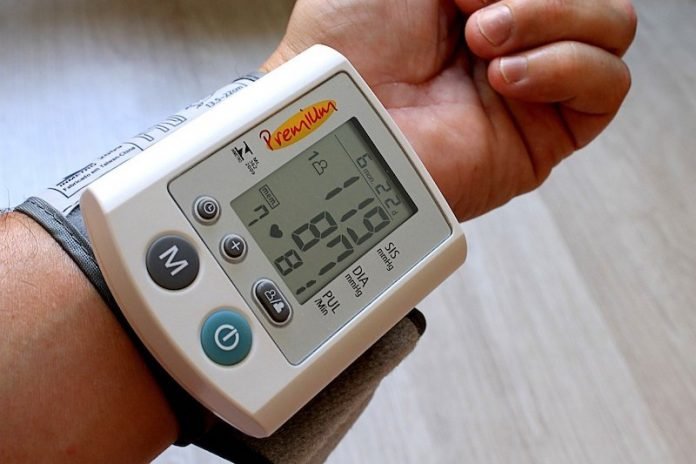
In a new study, researchers found that at-home blood pressure monitoring using a web-based system offering personalized support and linked to a remote healthcare professional can result in better hypertension management than face-to-face consultations.
The research was conducted by a team at the University of Oxford, Southampton, and Bristol.
In the United Kingdom, more than 30% of adults have raised blood pressure, also known as hypertension, which is a major risk factor for heart disease internationally.
With GP surgeries currently requesting that many patients opt for virtual consultations to avoid exposure to coronavirus infection, the clinical monitoring of hypertensive patients using face-to-face consultation is a challenge for primary care.
In the study, the team evaluated the combination of regular self-monitoring at home with a web-based tool that offered reminders, predetermined drug changes, lifestyle advice and motivational support.
They found that for participants managing their blood pressure at home, mean systolic blood pressure was much lower after 12 months compared with those managed exclusively in the clinic, giving a mean difference of -3.4mm Hg between groups.
Those who were self-monitoring at home were also more likely to have their treatment adjusted by their healthcare professional.
The approach was not expensive, at £11 per mm Hg reduction in blood pressure.
622 participants aged 18 or over with high blood pressure were recruited into the study from 76 general practices across the UK, with half assigned to managing their blood pressure at home.
The team says the findings are especially important now that the coronavirus pandemic has made it urgent and vital to be able to offer remote, high-quality care to patients with high blood pressure.
One author of the study is Professor Richard McManus.
The study is published in the BMJ.
Copyright © 2021 Knowridge Science Report. All rights reserved.



